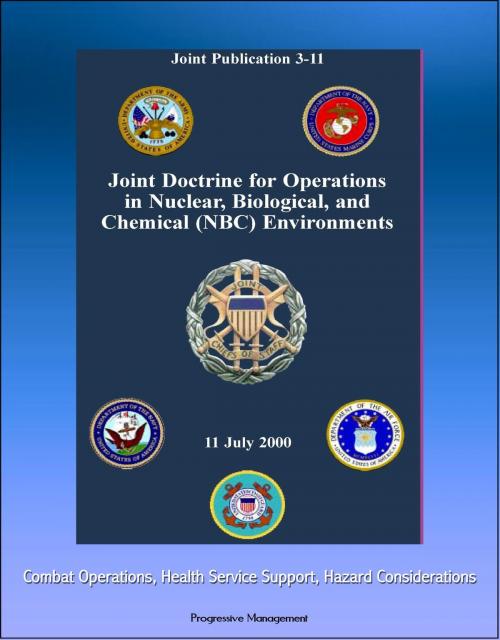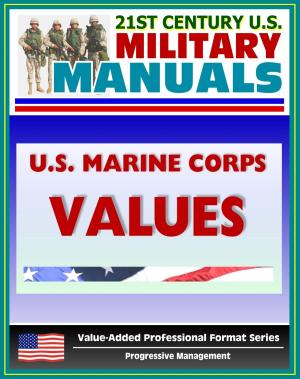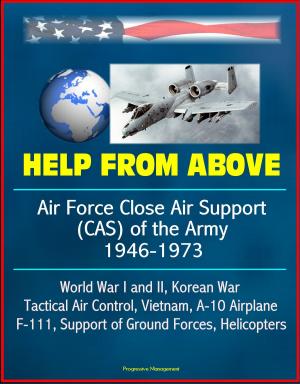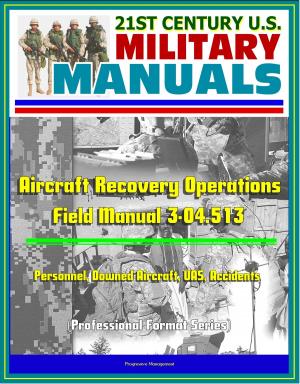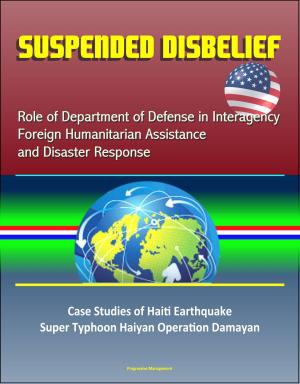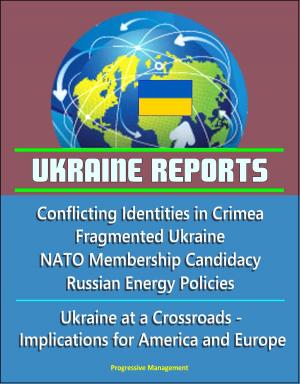Joint Doctrine for Operations in Nuclear, Biological, and Chemical (NBC) Environments (Joint Publication 3-11) - Combat Operations, Health Service Support, Hazard Considerations
Nonfiction, History, Military, Biological & Chemical Warfare, Nuclear Warfare| Author: | Progressive Management | ISBN: | 9781301194575 |
| Publisher: | Progressive Management | Publication: | September 21, 2012 |
| Imprint: | Smashwords Edition | Language: | English |
| Author: | Progressive Management |
| ISBN: | 9781301194575 |
| Publisher: | Progressive Management |
| Publication: | September 21, 2012 |
| Imprint: | Smashwords Edition |
| Language: | English |
This publication sets forth principles to assist commanders and staffs to plan for and conduct operations in which their forces may encounter the employment or threat of nuclear, biological, and chemical weapons and other toxic materials. These principles apply to joint, multinational, and interagency operations.
The crises and conflicts that characterize the international security environment pose complex simultaneous challenges to the interests and security of the United States. The Armed Forces of the United States, in the United States or abroad, may be required to conduct operations in nuclear, biological, and chemical (NBC) environments. The principles set forth in this publication are designed to enable combatant commanders and subordinate joint force commanders (JFCs) to plan for, train their forces for, and execute their assigned missions in a tumultuous international security environment against a varied set of NBC-capable adversaries. The Armed Forces of the United States plan for and conduct operations to overcome complex simultaneous challenges across the range of military operations against adversaries who may be armed with NBC weapons. While any given threat and operation may be focused principally in a particular overseas region, the adversary may have the motivation and means to extend the conflict to other regions including US territory. Threat - Adversaries may be particularly inclined to threaten or use nuclear, biological, and chemical (NBC) weapons in asymmetric operations to overcome the military strengths and assail the vulnerabilities of the United States and its multinational partners.
EXECUTIVE SUMMARY * CHAPTER I * THE STRATEGIC CONTEXT * • General * • International Environment * • NBC Weapons * • Threat * • Strategic Guidance * CHAPTER II * PEACETIME PREPAREDNESS AND THE TRANSITION TO OPERATIONS * • General * • Preparedness in the United States * • Preparedness in Theater Operational Areas * • Considerations for Supported and Supporting Combatant Command Strategic Planning * • Considerations at the Outset of Operations * CHAPTER III * SUSTAINED COMBAT OPERATIONS * • General * • Principles of Operations in NBC Environments * • Principles of NBC Defense * • Relationship of NBC Defense to Other Offensive and Defensive Capabilities * • Special Considerations for Sustained Combat * • Logistics and Rear Area Operations * • Responsibilities for Operations in NBC Environments * CHAPTER IV * HEALTH SERVICE SUPPORT * • General * • Campaign Planning * • Health Service Support * • Preventive Medicine Principles * • Countermeasures and Response to NBC Medical Effects * • Patient Movement * • Casualty Decontamination and Triage * • Medical Treatment Facilities * CHAPTER V * SUPPORTING CONFLICT TERMINATION * • General * • Transition to Conflict Termination * • Post-Conflict Operations * CHAPTER VI * MILITARY OPERATIONS OTHER THAN WAR * • General * • Overview * • Peacetime Preparations and Transition to Operations * • MOOTW Within the United States * APPENDIX * A Threat Considerations * B Nuclear Hazard Considerations * C Biological Hazard Considerations * D Chemical Hazard Considerations * E Treaty, Legal, and Policy Obligations * F References * GLOSSARY * Part I Abbreviations and Acronyms * Part II Terms and Definitions
This publication sets forth principles to assist commanders and staffs to plan for and conduct operations in which their forces may encounter the employment or threat of nuclear, biological, and chemical weapons and other toxic materials. These principles apply to joint, multinational, and interagency operations.
The crises and conflicts that characterize the international security environment pose complex simultaneous challenges to the interests and security of the United States. The Armed Forces of the United States, in the United States or abroad, may be required to conduct operations in nuclear, biological, and chemical (NBC) environments. The principles set forth in this publication are designed to enable combatant commanders and subordinate joint force commanders (JFCs) to plan for, train their forces for, and execute their assigned missions in a tumultuous international security environment against a varied set of NBC-capable adversaries. The Armed Forces of the United States plan for and conduct operations to overcome complex simultaneous challenges across the range of military operations against adversaries who may be armed with NBC weapons. While any given threat and operation may be focused principally in a particular overseas region, the adversary may have the motivation and means to extend the conflict to other regions including US territory. Threat - Adversaries may be particularly inclined to threaten or use nuclear, biological, and chemical (NBC) weapons in asymmetric operations to overcome the military strengths and assail the vulnerabilities of the United States and its multinational partners.
EXECUTIVE SUMMARY * CHAPTER I * THE STRATEGIC CONTEXT * • General * • International Environment * • NBC Weapons * • Threat * • Strategic Guidance * CHAPTER II * PEACETIME PREPAREDNESS AND THE TRANSITION TO OPERATIONS * • General * • Preparedness in the United States * • Preparedness in Theater Operational Areas * • Considerations for Supported and Supporting Combatant Command Strategic Planning * • Considerations at the Outset of Operations * CHAPTER III * SUSTAINED COMBAT OPERATIONS * • General * • Principles of Operations in NBC Environments * • Principles of NBC Defense * • Relationship of NBC Defense to Other Offensive and Defensive Capabilities * • Special Considerations for Sustained Combat * • Logistics and Rear Area Operations * • Responsibilities for Operations in NBC Environments * CHAPTER IV * HEALTH SERVICE SUPPORT * • General * • Campaign Planning * • Health Service Support * • Preventive Medicine Principles * • Countermeasures and Response to NBC Medical Effects * • Patient Movement * • Casualty Decontamination and Triage * • Medical Treatment Facilities * CHAPTER V * SUPPORTING CONFLICT TERMINATION * • General * • Transition to Conflict Termination * • Post-Conflict Operations * CHAPTER VI * MILITARY OPERATIONS OTHER THAN WAR * • General * • Overview * • Peacetime Preparations and Transition to Operations * • MOOTW Within the United States * APPENDIX * A Threat Considerations * B Nuclear Hazard Considerations * C Biological Hazard Considerations * D Chemical Hazard Considerations * E Treaty, Legal, and Policy Obligations * F References * GLOSSARY * Part I Abbreviations and Acronyms * Part II Terms and Definitions
